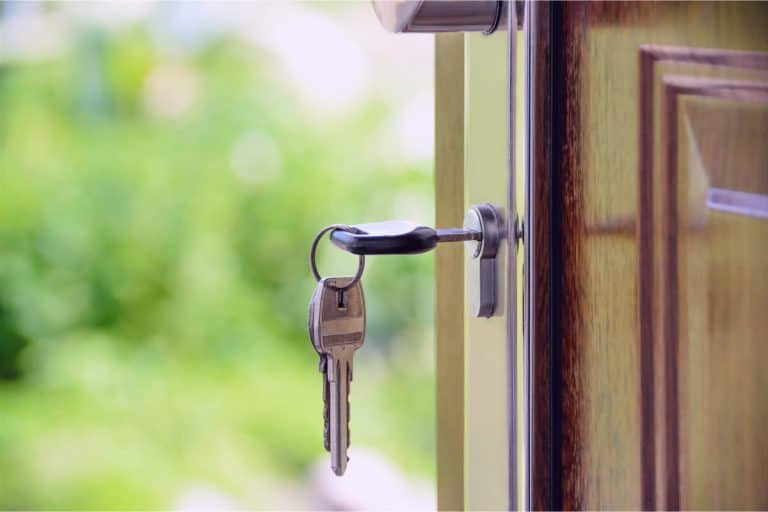5 Home Security Tips for Homeschooling Parents

When you choose to homeschool your kids, you remove much of the guesswork about what your son or daughter is doing during the day. While your home is generally a safe place, this doesn’t mean you should let your guard down about potential safety and security concerns. Follow these tips to protect your home and your child, so you can focus on teaching and learning.
Have an Emergency Plan
Devise a plan for any emergency situations that may arise. What do you do if there’s a fire? Do you have a go-bag in the event of a natural disaster? What should your son or daughter do if there’s an intruder in the house? Go over various scenarios that can occur and make sure your son or daughter knows what to do. If something happens to you, make sure your child knows who to call for help. Post important numbers in a prominent place, like on the fridge, or program them in a cell phone your kids can use in an emergency.
You may also want to take a course in basic CPR and First Aid. “No parent wants to think about their child choking or ever needing to perform CPR on anyone, much less their own child,” according to Child Development Institute. “However, when done correctly CPR can save your child’s life. It can restore breathing and circulation until emergency personnel arrive.” First Aid will help you take care of cuts and scrapes, and CPR can help you deal with accidents, near-drowning, poisoning, and suffocation.
Note: CPR and First Aid are still good to know even if your kids are older.
Keep the Doors Locked
You’ve got locks on your doors so don’t forget to use them; nearly 30 percent of burglaries occur through an unlocked door or window! If your kids tend to go in and out frequently during the day and forget to lock the doors, consider installing smart locks that auto lock or allow you to control them through an app on your smartphone. Just get into the habit of keeping the doors closed and locked.
Also, set some rules about going outside during the day. If your kids are going outside, they need to let you know. If you have a pool in the backyard, remind your kids they aren’t supposed to use it unattended.
Remind Your Kids Not to Open the Door for Strangers
From delivery people to door-to-door salespeople, you may have some visitors during the day. Tell your children not to open the door for strangers. If you’re not anticipating a visitor or delivery, make sure to check who is at the door instead of opening it blindly. Use your peephole, or get an intercom system or door monitor. If you don’t feel safe, you may just not want to answer the door at all, and that’s OK, it’s your home, and you want to feel safe.
Get to Know Your Neighbors
Your neighbors can be important allies when it comes to keeping your home and community safe. Get to know them so you know who you can trust in an emergency. Also, find out about their schedules (without prying or being nosy), so you will know if something seems amiss during the day, like if someone is there when they shouldn’t be. You should also communicate with your neighbors regularly to keep each other informed of what’s going on in the neighborhood. This way, if there’s any unusual activity, you and your neighbors will be aware of it.
Protect Yourself Online
We’ve talked about physical safety and security, but it’s also important for you and your children to stay safe online. Your kids will likely use the computer for some assignments and research, and while you can set up some parental controls to limit their access to certain websites, it’s important for them to know basic aspects of online safety.
Set up strong passwords for all of your online accounts. Each website or account should have a unique password, preferably longer than 10 characters and a combination of letters, numbers and special characters. Remind your kids to never give their passwords to anyone online and that no one will ever ask for their password via email. If they receive an email with a password request, instruct them not to respond.
Just as they shouldn’t answer the door to strangers, remind your kids not to talk to people they don’t know online. While homeschooling may shield them from some in-person bullying, it doesn’t necessarily protect them from cyber bullying. Encourage your child to let you know immediately if he or she encounters harsh language or mistreatment online. Make sure they understand you want to know so you can help them. Many kids avoid telling their parents about encounters online because they fear they will be punished.
You may also want to set up some ground rules about the computer. For example, maybe your son or daughter can only use the Internet during certain times of the day, and the computer must stay in a communal room of the house. You can figure out what works best for you and your kids, just make sure they understand some basic principles that will keep them safe.
When you follow these safety guidelines, you will have less to worry about during the day. You can focus on your lesson plans and help your child get the best possible at-home education.
What are your safety tips for homeschooling parents? Share them with us in the comments below!







Leave a Reply